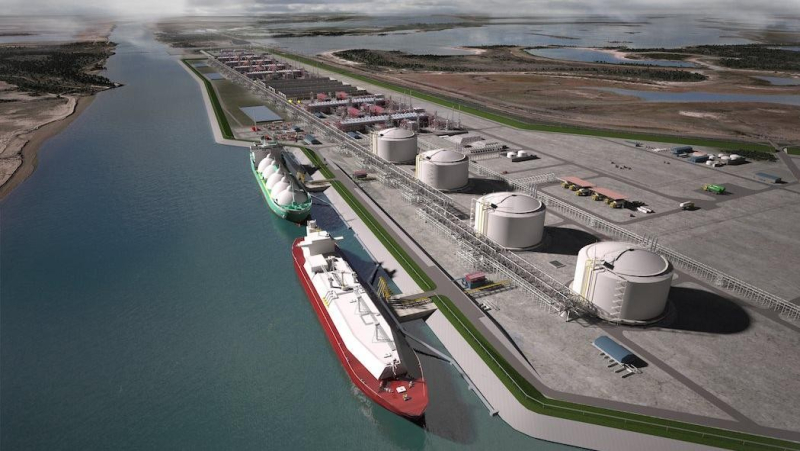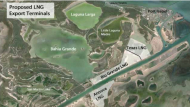Lawsuits challenge approval of Rio Grande and Annova fracked gas export facilities in Texas for harm to endangered ocelot

Today, environmental groups filed a lawsuit challenging the U.S. Fish and Wildlife Service’s (FWS) approval of the massive Annova LNG fracked gas export terminal proposed for southern Texas. The suit was filed in conjunction to one the groups filed last week challenging the Rio Grande fracked gas export facility proposed for the same area. These projects threaten to contribute to the extinction of the endangered ocelot in the U.S.
The lawsuits, filed in the U.S. Court of Appeals for the Fifth Circuit by the Sierra Club and Defenders of Wildlife, challenge the “biological opinions” and “incidental take statements” issued by FWS on the facilities’ impacts to the endangered ocelot for violations of the Endangered Species Act. If built, the facilities would occupy more than 1,300 acres within the South Texas Ocelot Coastal Corridor, eliminating key habitat and cutting off the ocelot population in the Laguna Atascosa National Wildlife Refuge from ocelots in Mexico. It would also put ocelots at increased risk of being struck and killed by traffic, which is the leading known cause of ocelot deaths.
With a total U.S. population of fewer than 60 individuals, the ocelot is predicted by the FWS’s Recovery Plan to disappear from Texas within 40 years unless there are dramatic efforts to expand its habitat and decrease mortality. According to the plan, one necessary recovery action is to “Protect a bi-national corridor of habitat to connect the Cameron County ocelot population to the northernmost known ocelot population in Tamaulipas.” If the Annova, Rio Grande and other LNG plants are built along the ship channel, this recovery goal cannot be met. Because the construction and operation of the plants would help foreclose this recovery action, and there are only 12 ocelots left in the Laguna Atascosa National Wildlife Refuge, harming or killing even one more ocelot, as permitted by the FWS for each facility, is unacceptable.
“Allowing these fracked gas facilities to be built would have a devastating impact on the local environment and put the ocelot at grave risk of extinction,” said Sierra Club Managing Attorney Eric Huber. “The Fish and Wildlife Service’s decision to greenlight the Annova and Rio Grande LNG facilities violates the Endangered Species Act and runs counter to the agency’s mission to protect wildlife and natural habitats.”
“We know the gas export terminals, including the massive Annova and Rio Grande facilities, will have lasting impacts on the ocelot and their habitat,” said Defenders of Wildlife Texas Representative Dr. Sharon Wilcox, Ph.D. “The U.S. Fish and Wildlife Service’s own scientific findings don’t support the approval of these terminals. This decision is wrong, and we will continue to fight it in court.”
Annova and Rio Grande LNG facilities are two of three fracked gas export facilities proposed to be built in the area -- Annova LNG, Rio Grande LNG the associated Rio Bravo Pipeline, and Texas LNG. All three facilities face significant local opposition, as well as additional legal challenges to approvals by the Federal Energy Regulatory Commission and the Army Corps of Engineers.


